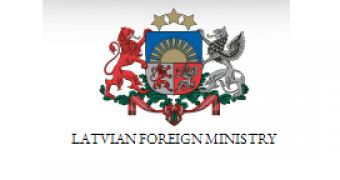Latvia's Foreign Minister Edgars Rinkevic says he opposes the extradition of Deniss Calovskis – a Latvian national accused of contributing to the development of the Gozi malware – to the United States.
Calovskis, who was arrested in Latvia in November 2012, and two other individuals from Russia and Romania were charged in January by US authorities for their role in the development and distribution of the Gozi malware.
The US Department of Justice alleges that the men were part of a cybercriminal ring responsible for infecting at least one million computers worldwide with malware, causing losses of tens of millions of dollars.
If he’s extradited to the United States, Calovskis faces over 60 years in prison.
In a statement published on the website of the Foreign Ministry, Rinkevic argues that this penalty is disproportionate with the crime that was allegedly committed.
Furthermore, the minister says there’s no guarantee the man would be given the possibility to serve his sentence in Latvia if he is convicted in the US.
Another reason why Rinkevic opposes the extradition is the fact that the 60-year prison sentence he faces in the US might violate the European Human Rights Convention, which Latvia has vowed to respect.
A violation of human rights could have a negative impact on the country’s budget because of the compensation that Latvia might be force to pay, the minister warns.
The official states that Calovskis’ case should be investigated by Latvian law enforcement agencies in cooperation with the US.
“Only in this way, our law enforcement institutions can grow their own skills and expertise in investigating sophisticated breaches of cyber laws,” he noted.
Finally, Rinkevic highlights that there’s no evidence that any crime has been committed on US soil.
The minister compares the case of Calovskis to the one of British hacker Garry McKinnon.

 14 DAY TRIAL //
14 DAY TRIAL //